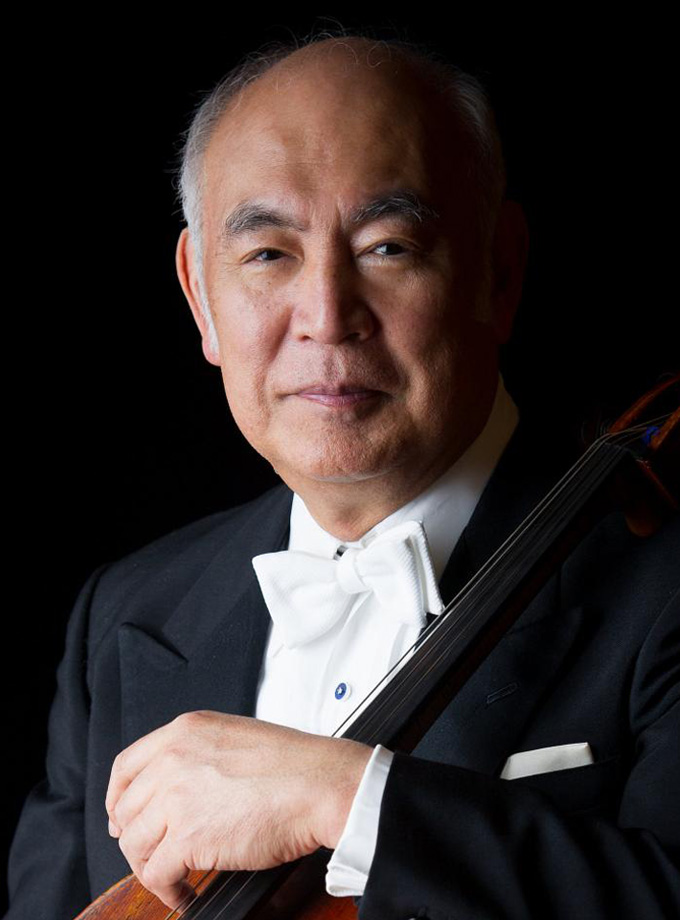Tsuyoshi
Tsutsumi
jury chair
CELLO
Japan
Tsuyoshi Tsutsumi was born in Tokyo in 1942. He is an artist with the ability to “add something akin to a spiritual quality (The Herald Times)” to the music and is one of the most notable musicians of his generation as well as being a respected cello performance mentor. Since debuting with the Tokyo Philharmonic at the age of 12 and winning the 1963 Pablo Casals International Cello Competition in Budapest, Tsutsumi has performed with renowned orchestras such as the ORTF, the Rundfunk-Sinfonieorchester Berlin Berlin Radio Symphony Orchestra, the Concertgebouworkest, the Munich and Warsaw philharmonics and the Chicago and Vancouver symphony orchestras.
Tsutsumi has collaborated with many great conductors, one of his most impressive appearances being a concert telecast worldwide at the United Nations with the Toho Gakuen Orchestra conducted by Seiji Ozawa. He is also a champion of premiering new music by Japanese composers, such as Toru Takemitsu, Akira Miyoshi and Toshiro Mayuzumi to name but a few. In addition to touring the globe as soloist, he is much engaged as an educator, leading masterclasses in the US, France, Netherlands, Canada, Korea, Taiwan and other Asian countries.
Following a tenure of almost 20 years as a faculty member of Indiana University, he contributed to his alma mater, the Toho Gakuen School of Music, as its president for nine years. In 1997, he was elected the first president of the Japan Cello Society, and in 2000 was appointed Music Director of Kirishima International Music Festival and Director General of the Suntory Foundation for Arts. He was also elected President of Suntory Hall in September 2007. Furthermore, he is now a specially appointed professor of the Toho Gakuen School of Music and, since 2017, a visiting professor at the Korea National University of the Arts School of Music.
He is a recipient of the Japan Art Academy Imperial Prize, the Medal with Purple Ribbon, which is the highest honour in Japan, and was recognized as a Person of Cultural Merit by the Japanese government in 2013. He was awarded the Mainichi Art Prize in 2019.
